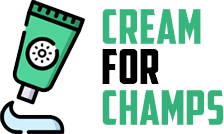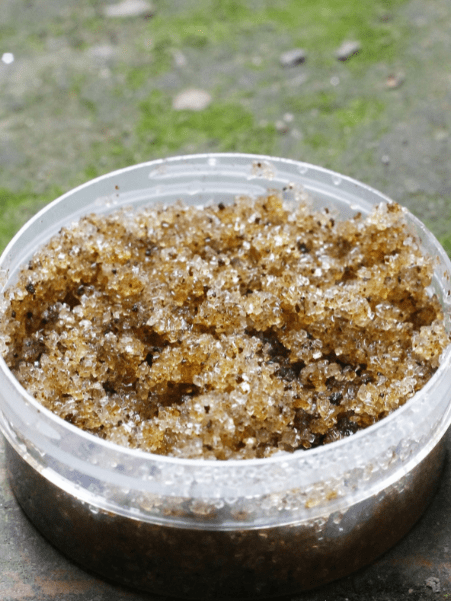During quarantine, people had a lot of time in their hands, and many are baking their own cakes, mixing their own drinks, cutting their own hair, and many other things we have never done before. One of the new things people do nowadays is making their own skincare concoctions. Some are just trying to cut down the amount of stuff they buy; some don’t have quick access to a drugstore; while others are just looking for a fun, new beauty thing to try, now that they have extra time on their hands. DIY skincare is becoming popular.
According to some dermatologists, making your own skincare products at home can benefit the skin. Adapting homemade products for the skin is a great way to soothe the skin. Some oils are excellent for moisturizing and highly recommended for repairing skin damage, brightening, or smoothening the skin. There are natural ingredients that can improve the health of your skin cells. There are many times DIY skincare works.
However, homemade is not always better than store-bought. Sometimes, DIY skincare may exacerbate the issue or inflame the skin, so it can become a hit and miss. And once the DIY recipe you tried did not work out on your skin, you may avoid all other DIY options altogether. This is a guide for you to know what DIY skincare recipes to avoid.
Sugar
Using sugar as a lip exfoliant is totally fine because the skin on the lips tends to be sturdier and more resilient than the skin on the rest of the face. However, the jagged, angular edges of a sugar crystal are too abrasive for the face, leading to tiny micro-tears on the surface of the skin. This may cause inflammation, irritation, and red marks. It’s better to stick to facial scrubs you can buy on the market or look for a scrub with rice bran powder, which can gently exfoliate the skin without tearing it up.
Ground-up nuts and nutshells or coffee grounds
Besides sugar, ground-up nuts, ground-up nutshells, and coffee grounds are also recommended by some DIYers as natural scrubs for the skin. It’s even a way to lessen kitchen waste, as they say. People will crush up shells of walnuts, almonds, and pistachios to create an exfoliating and moisturizing scrub mixed with olive oil.
This is understandable since nuts are healthy (if you’re not allergic), and almond oil is even recommended for the skin. However, crushing up the nuts, shells, and coffee grounds and rubbing them to the skin spells trouble. Like sugar, it can cut the delicate layer of their skin. Facial skin is fragile, especially the area around the eyes and mouth. It’s very easy to cut into it and cause more damage.
Lemon or lemon juice
Lemon and lemon juice is one of the oldest skincare remedies for lightening age spots, freckles, and melasma – basically for any skin issue where you want skin lightening. Touted as nature’s lightener, lemons actually have a pH of about 2, which can mess up the skin’s natural pH of 4 to 5. It means lemon is too acidic for the skin, causing inflammation, irritation, and compromise on the skin’s barrier function. The ascorbic acid (vitamin C) in lemons also increases the skin’s sensitivity to the sun, increasing the risk of sunburn, hyperpigmentation, premature aging, and skin cancer. Stick to using lemon for lemonades and tea, not for your face or skin.
Instead of lemon, use orange or grapefruit. You may also go for tomato juice, which is milder and gives off the same benefits.
Raw eggs
When it comes to skincare, eggs are popular for skin tightening and toning. It’s also believed to close up your pores. However, the skin tightening you feel is caused by the egg whites drying out your skin. When it dries out, it naturally feels tighter, and as soon as you wash the egg whites off, you won’t feel any different.
Using raw eggs on the skin is putting yourself at risk of dry skin conditions and salmonella. If you accidentally ingest it while applying egg whites to your face, it may cause stomach problems later. Raw eggs included in DIY recipes for anti-aging creams without proper preservatives is scary because it puts you at risk of bacteria and other food-borne pathogens.
The spa treatments that use egg white masks use other active ingredients within the mask that can help improve the health of the skin. They also make the customer undergo a pre- and post-treatment process to make sure the face is ready and safe for the treatment.
Apple cider vinegar
Some DIY bloggers will tell you that using full-strength apple cider vinegar as a toner or cleanser for acne and hyperpigmentation is a good idea. The truth is, it’s not. Like lemon, ACV is highly acidic and may cause skin irritation, inflammation, and burns even after a single use. It’s so acidic that it can be very effective for burning off warts and skin tags, but its continued use at full strength may cause permanent tissue damage.
When taken internally, raw ACV can help reduce acidity in the body, promote healthy digestion, reduce inflammation, and promote healthy levels of gut bacteria, which can indirectly help in enhancing skin health.
Hydrogen peroxide
Hydrogen peroxide is a go-to product for a lot of people to clean cuts and scrapes. While it can do a great job, it’s not advisable to use it daily in an undiluted application. Not only can it result in burning and inflammation due to prolonged use, but it can also decrease the skin’s ability to heal itself. It can strip away the skin’s moisture levels and protective barriers. Hydrogen peroxide is actually toxic to the skin, so your wound and the surrounding skin won’t heal if you keep using it.
Baking soda
Baking soda is commonly used for a lot of DIY home cleaners for just about anything. For skincare, it is used as a facial scrub, acne treatment, or skin lightener recipes. The fine yet scrubby texture of baking soda makes it a viable facial scrub for some DIYers. Unfortunately, this seemingly harmless powder is actually disastrous for your skin because of its high pH level of 9. This means it can significantly damage your skin’s natural barrier, which keeps harmful bacteria out. Prolonged use on the face may cause significant moisture loss, and it can compromise the skin’s ability to regulate itself.
Toothpaste
The DIY practice of applying toothpaste to acne is popular, but the truth is, it shouldn’t be. While it might work due to the antimicrobial ingredient triclosan, dermatologists recommend that you avoid using it and use actual acne treatments. Toothpaste also has a lot of skin-irritating ingredients such as menthol, alcohol, peroxide, and peppermint. The combination of these things will tear up your skin and possibly lead to chemical burns. Use tea tree oil or a benzoyl peroxide spot treatment instead.

